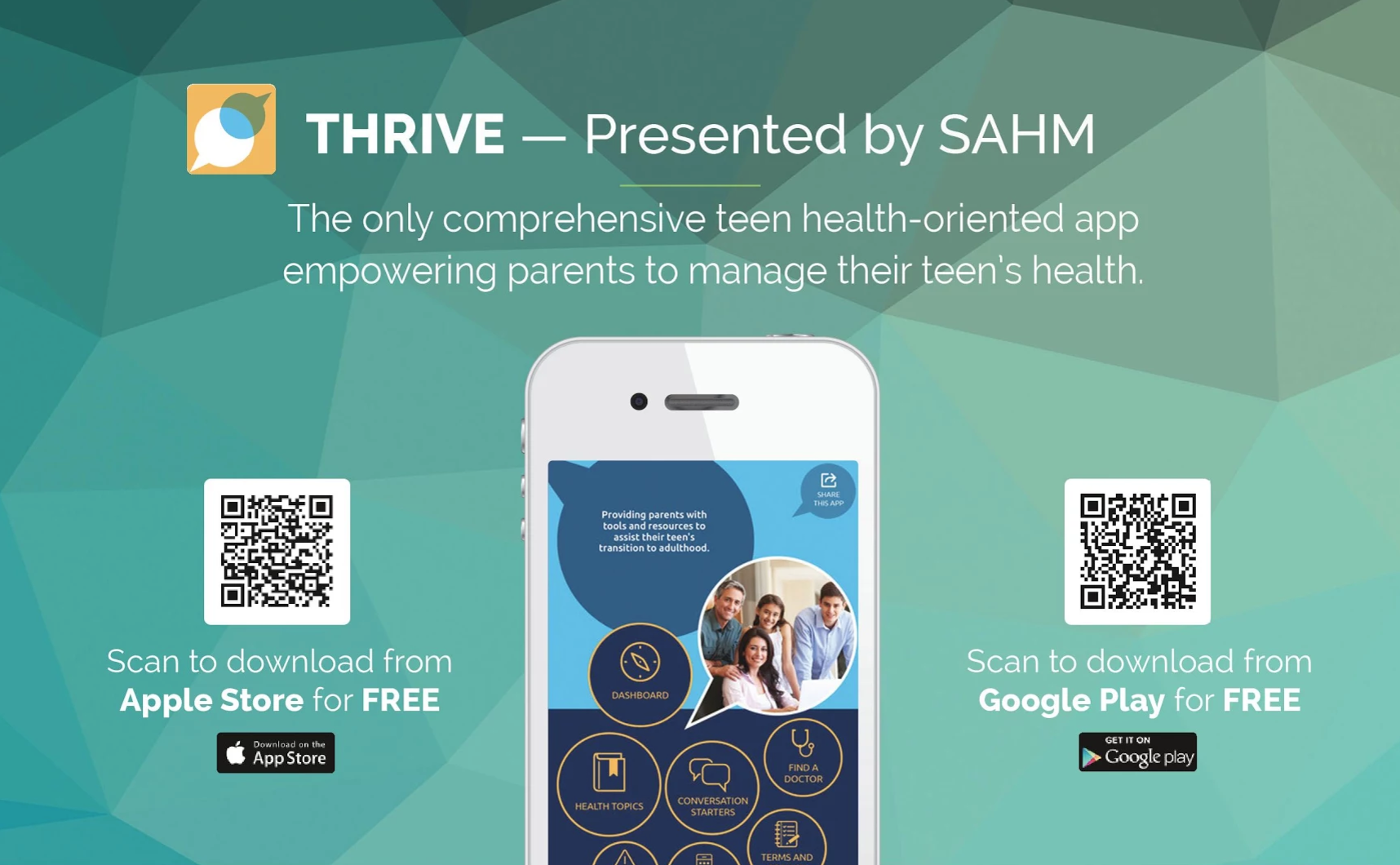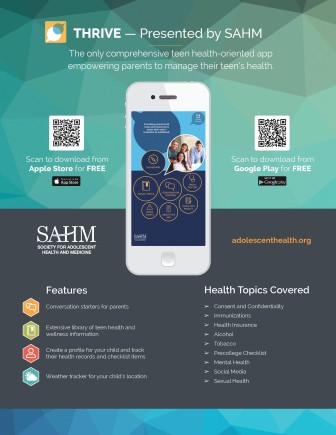A new app developed by the Society for Adolescent Health and Medicine (SAHM) seeks to help parents talk to teens and young adults about their health.
The THRIVE (Teen Health Resources, Information and Vaccine Education) app, developed by SAHM in partnership with Pfizer and UNITY Consortium, features a list of “conversation starters” meant to spark discussions between parents and their children about a variety of health-related topics, including alcohol and substance abuse, and mental health.
Parents can also document their child’s health information by taking photos of vaccination records, medications and insurance information and storing them in the app.
THRIVE specifically targets parents of high-school-aged and young adult children, said Dr. Karen Soren, who helped develop content for the app.
“We think parents sort of fall off the map when it comes to young adults,” she said. “Young adults have a huge need for parental input as well.”
Parents’ interactions with their children play a large role in preventing risky behavior, according to a 2011 literature review by Parachute Canada, a Canadian charity focused on preventing injuries.
“Parents have the power to create positive familial environments where their children feel comfortable disclosing information about the risky decisions they are facing in their daily lives,” the researchers wrote.
SAHM’s app is also designed to educate parents and dispel common myths about sex, alcohol and mental health, Soren said.
“One of our goals was to arm parents with facts so they can have productive conversations that their kids don’t discount,” she said.
[Related: Talk to Kids about Alcohol Early to Avoid Binge Drinking]
Dr. Beth Marshall, associate director at the Center for Adolescent Health at the Johns Hopkins Bloomberg School of Public Health, said getting parents the information they need is the first step in helping them engage with teens.
“I love that what is in [the app] are all the facts that a parent needs to be able to convey to a young person, as well as ‘How do I start these conversations?’” Marshall said.
Though THRIVE is geared toward parents, the dialogue is intended to help young adults transition into taking charge of their own health care, Soren said.
“The role that we try to encourage with parents talking to young adults is to just kind of open a conversation,” said Dan Beck, communications director for Got Transition, a cooperative agreement between the Maternal and Child Health Bureau and The National Alliance to Advance Adolescent Health that aims to help youth transition from pediatric to adult health care.
Beck said THRIVE’s conversation starters help young adults get used to the idea of setting up doctors’ appointments and keeping track of prescriptions at an age when they might not want to talk that much.
THRIVE is a step in the right direction for making that transition, Marshall said, but added that the move from parent-directed health care to self-directed health care is a “big jump.”
“There are still some more things that are needed, but I think that having all the information is a really positive step in that direction,” she said.
Marshall said some of the app’s features, such as the conversation starters and health information, would also be useful for child welfare workers. Not every worker is thinking about having a conversation with young adults about minor consent and confidentiality laws, she said, but the app points out that those are important topics to discuss.
SAHM developed all the content for the app, said Justin Dreyfuss, marketing communication manager for SAHM, and Pfizer worked on the technical aspects.
The app has been downloaded about 500 times since it was released on Aug. 31, Dreyfuss said. It is free to download and compatible with Apple and Android products.
“If this is successful, which we hope it is, we really want to add topics,” such as marijuana, especially as it becomes legalized, Soren said.
Marshall said she would like to see the developers include early adolescents as well, as that’s an age when many of these conversations should be taking place.
More related articles:
‘Somebody Asked:’ A Simple Strategy to Address Substance Use
Teacher, Author Knows How to Talk to Boys about Sexual Violence against Girls
Teen Siblings Create App to Monitor Police Interactions With Civilians



























